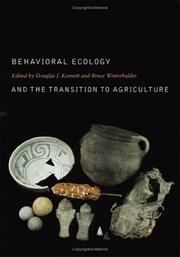| Listing 1 - 2 of 2 |
Sort by
|
Book
Year: 2017 Publisher: Woodbridge, Suffolk : The Boydell Press,
Abstract | Keywords | Export | Availability | Bookmark
 Loading...
Loading...Choose an application
- Reference Manager
- EndNote
- RefWorks (Direct export to RefWorks)
How important has the sea been in the development of human history? Very important indeed is the conclusion of this ground-breaking four volume work. The books bring together the world's leading maritime historians, who address the question of what difference the sea has made in relation to around 250 situations ranging from the earliest times to the present. They consider, across the entire world, subjects related to human migration, trade, economic development, warfare, the building of political units including states and empires, the dissemination of ideas, culture and religion, and much more, showing how the sea was crucial to all these aspects of human development.
The Sea in History - The Ancient World ranges very widely in its coverage, beginning with pre-historicalmaritime activity and going on to cover not only the classical Greek and Roman Mediterranean and Near Eastern worlds but also Africa, Asia and the Americas. Fascinating subjects covered include the migration of the Taíno people in the pre-historic Caribbean, the Athenian maritime empire at its height, the port of Alexandria in classical times, and ships, sailors and kingdoms in ancient SoutheastAsia.
25 of the contributions are in English; 18 are in French.
PHILIP DE SOUZA is Associate Professor of Classics at University College Dublin.
PASCAL ARNAUD is Professor of the History of the Roman World at the University of Lyon II, Senior Fellow at Institut Universitaire de France and co-director of the ERC-funded Grant Portus-Limen. CHRISTIAN BUCHET is Professor of Maritime History, Catholic University of Paris, Scientific Director of Océanides and a member of l'Académie de marine.
Ocean and civilization. --- Greek history. --- Roman history. --- Southeast Asia. --- ancient Greeks. --- ancient Romans. --- ancient history. --- civilizations. --- early civilization. --- emigration. --- environmentalism. --- maritime history. --- migration. --- nomad. --- oceanography. --- sea. --- water.

ISBN: 1282759434 9786612759437 0520932455 1598759175 9780520932456 1423752686 9781423752684 9781598759174 9780520246478 0520246470 9781282759435 Year: 2006 Publisher: Berkeley University of California Press
Abstract | Keywords | Export | Availability | Bookmark
 Loading...
Loading...Choose an application
- Reference Manager
- EndNote
- RefWorks (Direct export to RefWorks)
This innovative volume is the first collective effort by archaeologists and ethnographers to use concepts and models from human behavioral ecology to explore one of the most consequential transitions in human history: the origins of agriculture. Carefully balancing theory and detailed empirical study, and drawing from a series of ethnographic and archaeological case studies from eleven locations-including North and South America, Mesoamerica, Europe, the Near East, Africa, and the Pacific-the contributors to this volume examine the transition from hunting and gathering to farming and herding using a broad set of analytical models and concepts. These include diet breadth, central place foraging, ideal free distribution, discounting, risk sensitivity, population ecology, and costly signaling. An introductory chapter both charts the basics of the theory and notes areas of rapid advance in our understanding of how human subsistence systems evolve. Two concluding chapters by senior archaeologists reflect on the potential for human behavioral ecology to explain domestication and the transition from foraging to farming.
Human evolution. --- Human ecology. --- Human behavior. --- Agriculture, Prehistoric. --- Agriculture --- Evolution (Biology) --- Physical anthropology --- Evolutionary psychology --- Human beings --- Ecology --- Environment, Human --- Human environment --- Ecological engineering --- Human geography --- Nature --- Action, Human --- Behavior, Human --- Ethology --- Human action --- Human biology --- Psychology --- Social sciences --- Psychology, Comparative --- Prehistoric agriculture --- Prehistoric peoples --- Origin of agriculture --- Agriculture, Prehistoric --- Domestication --- Origin. --- Origin --- Social aspects --- Effect of environment on --- Effect of human beings on --- Behavior --- Food --- History --- agriculture. --- andes. --- animal domestication. --- arabia. --- archaeology. --- arizona. --- cumberland. --- domestic animals. --- early civilization. --- ecology. --- environment. --- food production. --- foraging. --- fremont. --- hbe. --- highlands. --- history. --- human behavior. --- human behavioral ecology. --- hunting and gathering. --- indigenous culture. --- indigenous people. --- land use. --- madagascar. --- maize. --- mikea. --- neotropics. --- new guinea. --- nonfiction. --- oceania. --- pacific coast. --- plant domestication. --- rain barrier. --- science. --- valencia. --- wild animals.
| Listing 1 - 2 of 2 |
Sort by
|

 Search
Search Feedback
Feedback About UniCat
About UniCat  Help
Help News
News